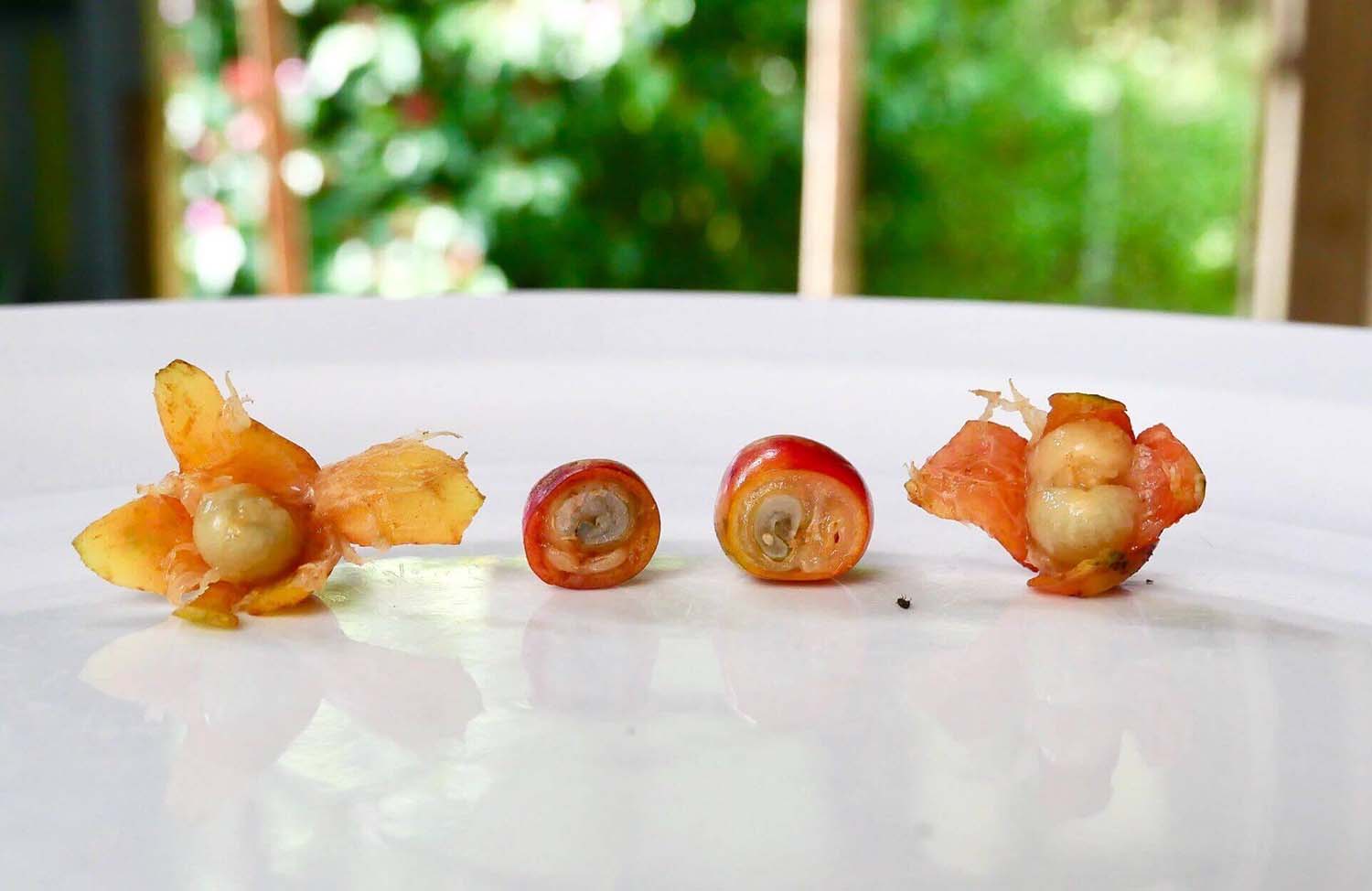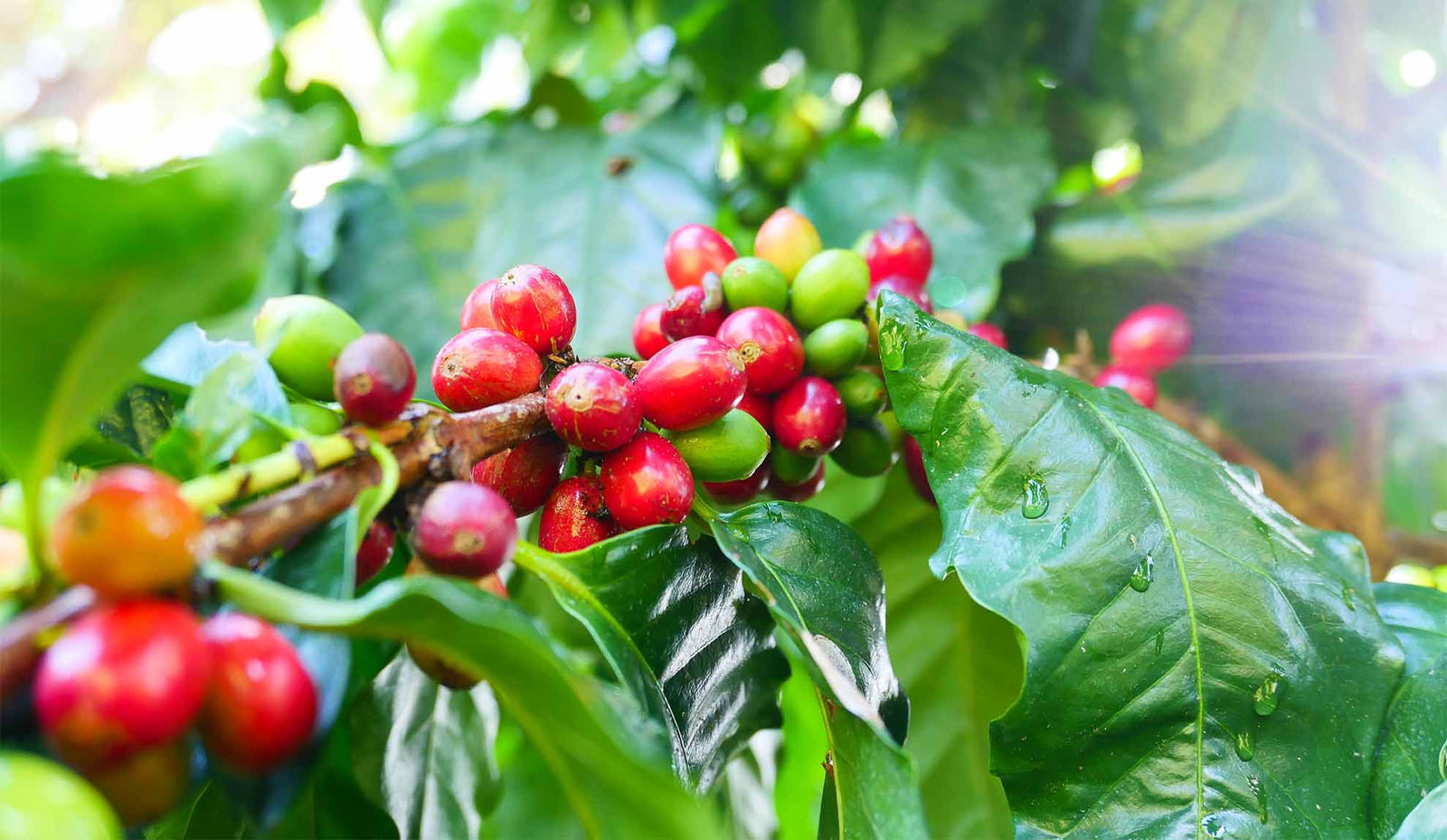The biggest lie in Hawaiian coffee is that it’s all about the location. It's tempting to believe, but it just isn't true.
Here’s a true story to illustrate the point:
A prominent Hawaii-based food manufacturer called to ask if we could help with the quality issues in their coffee shop. Turns out the roasted Hawaiian coffee they'd been buying had received complaints and they wanted our advice.
They hoped that using the same Kona coffee beans but a different roasting process (i.e. a different roast profile) could resolve the issue.
“It just doesn't taste the same as last year. Can you roast it for us?” the business owner said.
I cupped it and my taste buds puckered. It was vinegary and metallic, which we identified as both harvesting and processing defects. Although the grower and the client suspected it was a roasting issue, the harsh vinegary defect told me this coffee was over-fermented at the farm, and the issue wasn't roasting at all.
So I roasted the coffee eight different ways for the business to sample. Upon cupping the samples, not surprisingly, none of them were approved.
Without going into great detail, I'll just say that from visiting the grower's coffee farm several times, we were well aware of the reasons this coffee tasted “off.” In the grower's mind, providing great coffee came down to one simple condition: growing it in Hawaii. This is a common misconception with growers and consumers alike. In reality, coffees are only as good as their handling, and good handling takes a lot of work.
For decades, Hawaii's farmers have been taught that the quality of their work doesn't matter -- only that it was grown in Hawaii. In the end, 10% of their coffee would be blended with Colombia coffee, weird artificial flavorings, and sold at the supermarket for $6.99.
But now, the expectations around coffee are changing, and coffee changes because consumers change, and consumers change because ideas change.
Over time, poor quality leads to a poor reputation and low pricing. It's a race to the bottom making farming unsustainable. And that’s what we’re trying to change. We want authentic and wholesome products, delivered within an equitable supply chain.
As with most American-made products, real Kona coffees will always be priced at a premium due to the economics of labor, land, and laws. We believe that we owe it to you, our customers, and to Hawaii, to master our craft and provide the best Hawaiian and Kona coffees we can. This is our way of safeguarding Hawaii and the art of producing things by hand.
Eventually, the business decided to discontinue that coffee. But their interest in serving Kona coffee continued and our conversations evolved. I explained to the business that, as a roaster, there is nothing we can do short of burning/over-roasting the bad coffee in attempt to mask the defects.
No, roasters aren't alchemists. We can’t turn bricks into gold. At a lighter roast, the array of defects would be revealed.
Furthermore, we could not, in good conscious, continue to roast the coffee because we suspected it contained potentially carcinogenic molds that can occur in poorly handled coffees.
Producing great coffee is a partnership where attributes are transformed at every step in the process. To demonstrate the point, a few weeks later we brought the business a sample of coffee we'd roasted from a farm only ¼ mile from the first farm. The location was practically the same, but the farmer took a vastly different approach: healthy coffee trees, ripe harvesting, clean processing, and environmentally controlled storage.
The Hawaii-based food manufacturer tasted it and became hooked on that coffee: it was (and is) a clean, balanced,sweet Kona coffee.
Regardless of location or variety, coffees can be made great or disappointing -- specialty or commodity -- and there's a breadth of labor, education and investment that separates the two.
If I had to choose the most important aspect of producing great coffee, it would start with caring to do so.




